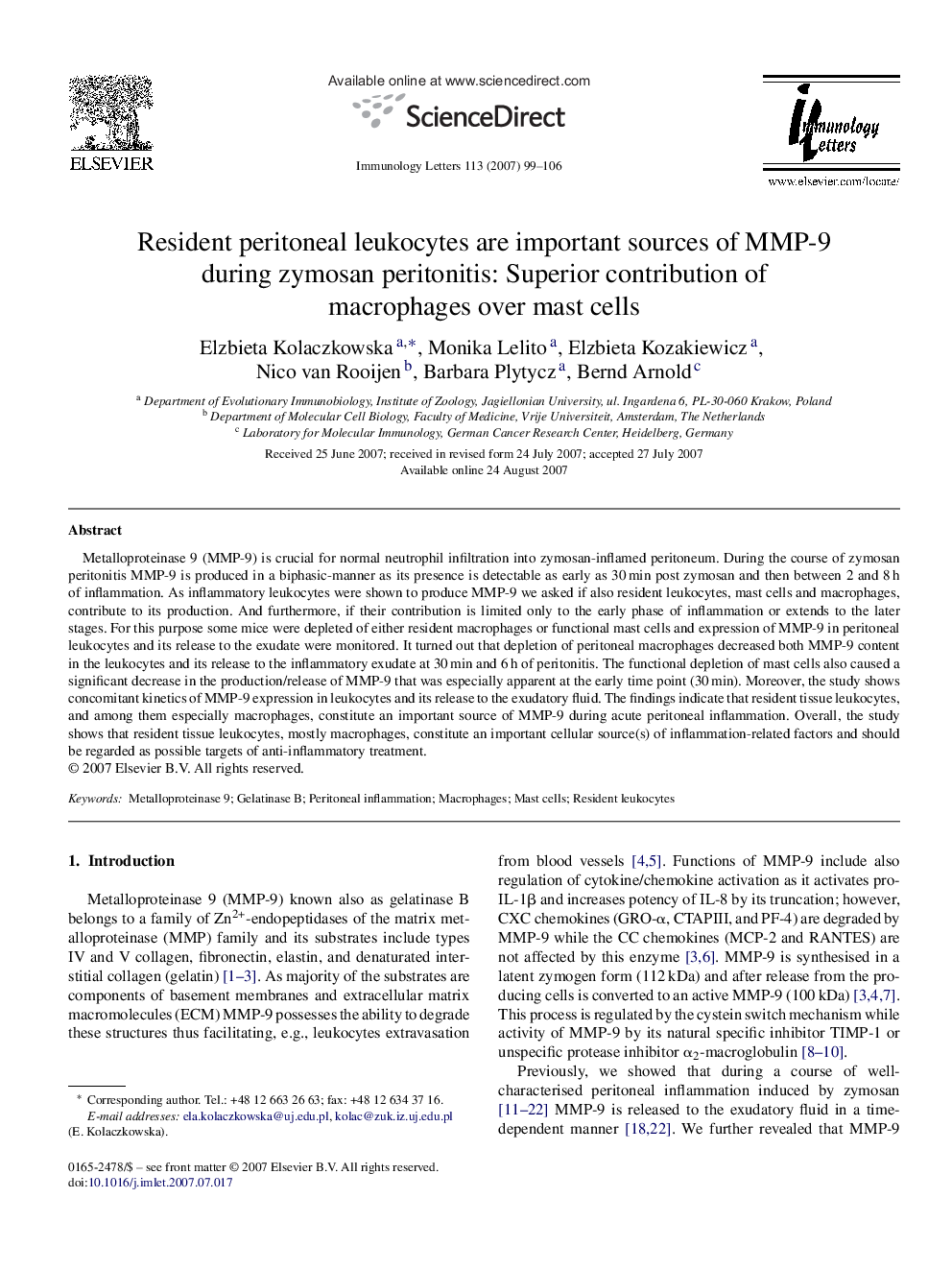| Article ID | Journal | Published Year | Pages | File Type |
|---|---|---|---|---|
| 3356297 | Immunology Letters | 2007 | 8 Pages |
Metalloproteinase 9 (MMP-9) is crucial for normal neutrophil infiltration into zymosan-inflamed peritoneum. During the course of zymosan peritonitis MMP-9 is produced in a biphasic-manner as its presence is detectable as early as 30 min post zymosan and then between 2 and 8 h of inflammation. As inflammatory leukocytes were shown to produce MMP-9 we asked if also resident leukocytes, mast cells and macrophages, contribute to its production. And furthermore, if their contribution is limited only to the early phase of inflammation or extends to the later stages. For this purpose some mice were depleted of either resident macrophages or functional mast cells and expression of MMP-9 in peritoneal leukocytes and its release to the exudate were monitored. It turned out that depletion of peritoneal macrophages decreased both MMP-9 content in the leukocytes and its release to the inflammatory exudate at 30 min and 6 h of peritonitis. The functional depletion of mast cells also caused a significant decrease in the production/release of MMP-9 that was especially apparent at the early time point (30 min). Moreover, the study shows concomitant kinetics of MMP-9 expression in leukocytes and its release to the exudatory fluid. The findings indicate that resident tissue leukocytes, and among them especially macrophages, constitute an important source of MMP-9 during acute peritoneal inflammation. Overall, the study shows that resident tissue leukocytes, mostly macrophages, constitute an important cellular source(s) of inflammation-related factors and should be regarded as possible targets of anti-inflammatory treatment.
